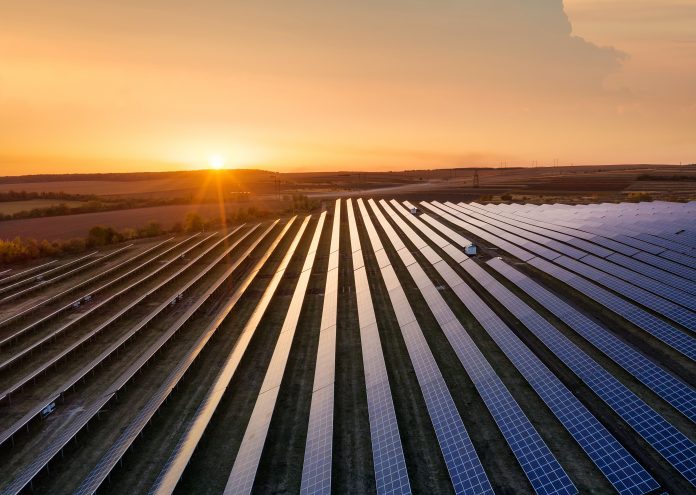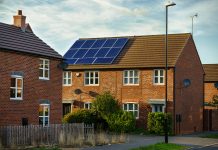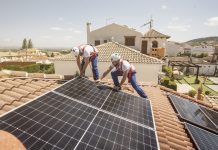Rohit Sen & Kanak Gokarn from ICLEI – Local Governments for Sustainability, argue that local and regional governments can play a powerful role in driving the renewable energy transition
In the wake of COP26, several national governments have upped their climate commitments to tackle the climate emergency. However, these targets, even if effectively implemented, may not be enough to reduce the rise in global temperatures to 1.5°C as per the Paris Agreement. To avoid the worst effects of climate change, other stakeholders must join and lead the charge — and local and regional governments are perfectly poised to do so.
Many national-level pledges call for net-zero emissions, for which 100% renewable energy use will be a major cornerstone. Over 130 nations made net-zero commitments in the lead up to COP26. As of 2020, over 600 cities worldwide had targets for 100% renewable energy, while almost 800 had made net-zero commitments.
100% renewable energy
The goal of 100% renewable energy calls for meeting energy demand in all end-use sectors, region-wide, 24 hours a day, with renewable energy sources and other enabling technologies such as energy storage, energy grids and green hydrogen. The nature of many renewable sources such as solar photovoltaics — notably the ability to deploy them in a decentralised fashion, and their low emissions of both carbon dioxide and other pollutants — can make them well-suited for local use.
While the support for renewable energies is quite evident at the national level, at the local level renewable energy projects tend to face many challenges. Local and regional governments, however, are well-positioned to bring on board various stakeholders through awareness- raising campaigns and more inclusive policies. Thanks to their unique position and strong links to their communities, they are better able to identify and act on the challenges faced by their communities and work towards addressing them during the energy transition, while helping communities to become more resilient against the effects of climate change.
Renewable energy sources can allow for greater local resilience given their dispersed nature and can provide communities with access to affordable, clean and modern energy services, particularly in remote or underserved communities. Decarbonising the supply of energy is critical for achieving a number of other sustainable development goals, especially SDG11 and SDG13. Additionally, in the aftermath of the COVID-19 pandemic, enhancing the transition to renewable energy can also be a strong driver of ‘green recoveries’, enabling the tackling of three crises (access to energy, climate change mitigation, and green recovery) simultaneously.
Aiming for 100% renewable energy can bring a host of benefits for communities that are felt in daily life.
Examples include the health benefits provided by renewables through reduced air pollution or the creation of a local green economy and jobs. Supportive measures, such as employment retraining programmes, can help greatly.
Households are becoming major drivers of the renewable energy transition — potentially over half of emission reduction actions will come from households acting to purchase electric vehicles, adopting distributed generation technologies and retrofitting to improve energy efficiency. A number of applications of renewable energy technologies exist that can enable the uptake of renewables and provide many benefits compared to their fossil- fuel-based counterparts.
Energy innovation in cities & regions
Cities and regions can also be sites for innovative approaches — examples include waste-to-energy solutions for Malmö, floating photovoltaics (‘floatovoltaics’) for Orlando, zero-emissions buildings for Vancouver, or distributed generation for Palmas. Local and regional governments — given the introduction of the right policy frameworks — can pilot new and innovative solutions adapted to their specific contexts, and through this draw further attention, innovation and financial and technological stakeholders.
Knowledge exchange and collaboration with other cities and regions are also important, to allow the sharing of resources and approaches that can help build the capacity and skills that are needed to enable a successful and sustainable transition. Greater collaboration across multiple levels of government is also essential to enable the wider uptake of successful policies and practices.
Harmonising sectors to accelerate the transition
The commitment to 100% renewable energy cannot be undertaken with a siloed approach. It is essential to adopt approaches that harmonise multiple sectors to amplify their strengths and accelerate the pace of the transition. For example, integrated urban planning can facilitate the uptake of sustainable mobility solutions or incentivise decentralised generation combined with the uptake of electric vehicles. Measures to reduce energy demand through energy efficiency and conservation measures, and the greater electrification of end-uses such as transport and heating, can be greatly facilitated with sector coupling, the use of combined heat and power, citizens’ participation and the uptake of renewables by all stakeholders.
While finance is central to this transition, it must also be matched with providing the right policy frameworks and political mandates for local and regional governments to allow it to be channelled to where it is needed the most. With the increasing pace and ambition for the renewable energy transition, the volume and access to finance needs to increase significantly for all involved actors to be able to implement projects and realise their impact on the ground. Promoting renewable energy must also be matched with accelerating efforts to phase out the use of fossil fuels. Given the scale of the societal transformation that will be required, bottom-up action could be more effective in creating a sustainable, just and inclusive transition.











